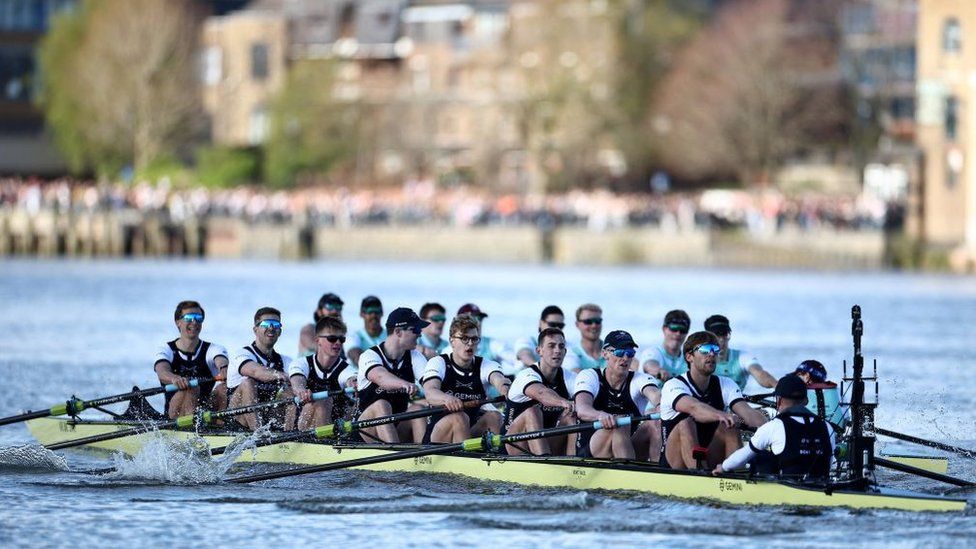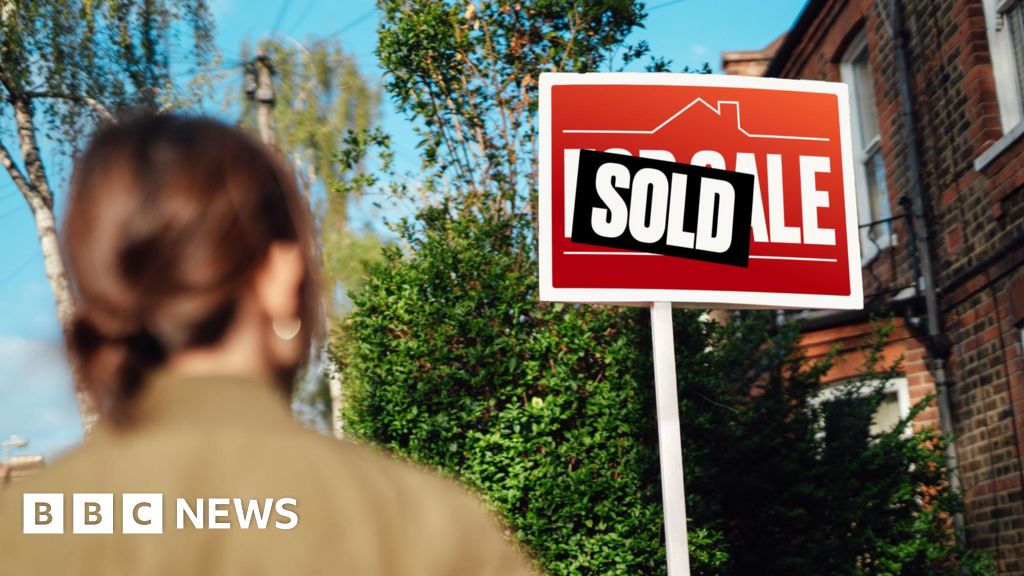ARTICLE AD BOX
 Image source, Getty Images
Image source, Getty Images
By Simon Jack
Business editor
The boat race is not normally that relevant to 16 million people. Watching the socially privileged engage in a time-honoured and exclusive duel on the Thames is not everyone's cup of tea.
But this year's contest between Oxford and Cambridge came with a quite literal health warning that will resonate with customers of Thames Water and millions more around the UK used to hearing about the sewage in our rivers and beaches.
The boat race crews were given safety advice to avoid swallowing water splashed up from the Thames. After the race, the Oxford rowers criticised sewage levels in the river.
The new boss of Thames Water must also feel like he's up to his neck in excrement, though in his case it is the financial kind. Because Britain's biggest water company is, quite simply, drowning in debt.
The immediate red alert is at Thames Water's parent company, Kemble. It is owned by some of the biggest pension and sovereign wealth funds in the world but this week it told its lenders it couldn't pay its debts.
Kemble defaulted on interest payments on a £400m loan, and said it doesn't have enough cash to pay back a loan of £190m due at the end of this month.
This renders Thames' parent company effectively insolvent. That matters because it was supposed to pump more than £3bn in new money into the company that supplies clean water and removes waste for a quarter of the UK.
Last week, Kemble shareholders halted a £500m down-payment on that promised cash injection when regulator Ofwat rejected plans to raise customer bills by 40% above inflation over the next five years.
The purpose of Kemble is to inject money into Thames and then eventually receive dividends which can be paid out to owners, which include foreign and domestic pension funds as well as Chinese and Gulf state wealth funds. Given Thames' precarious financial position, current shareholders have not taken any payouts since 2017.
Previous owners Australian firm Macquarie took out nearly £3bn in dividends and allowed its debt pile to triple between 2006 and 2017.
Kemble's new shareholders have told the BBC they are not prepared to throw more capital at a company that is losing money and they appear to have reconciled themselves to the fact their shares are worth nothing,
The amber alert is at Thames Water itself, which is ring-fenced, regulated, £14.7bn in debt and 100%-owned by parent company Kemble. The new boss, Chris Weston, tried to allay fears by saying it had enough in cash and overdraft facilities to keep ticking over till next May, but at some point Thames will need a fresh cash injection.
1. Will Thames Water be nationalised?
Image source, Getty Images
"Eventually, possibly," the chief executive told the BBC last week. "But that is a way off yet."
The Treasury, the Department for Environment, Food & Rural Affairs and Ofwat have been wargaming a situation in which Thames is put into a Special Administration Regime, which would see financial consultants run the company on the government's behalf.
When energy company Bulb went bust in 2021 and was placed under special administration, consultants at Teneo were hired. The same firm has reportedly been approached by Thames.
But what would that mean for Thames customers and/or taxpayers?
Thames is not making enough money to cover its costs. That means that either bills to customers will have to rise or taxpayers across the UK would have to foot a shortfall that could run into billions if it remains in public ownership beyond next May.
That could be a tough sell to voters outside the southeast of England in an election year.
Image source, Getty Images
A possibility. Throughout this crisis, Ofwat has insisted that Thames Water - despite its eye watering £14.7bn of debt - is a company that generates £2bn a year in inflation-linked income, which might be attractive to someone.
However, any potential new owner would have to be prepared to make lower - if any - returns on their investment than the current shareholders, who have been pretty patient having not taken any dividends from the parent company since 2017.
3. Could lenders to Thames Water agree to lower debt repayments?
Risky. In financial lingo, this is called "taking a haircut". Agreeing to reduced debt repayments from one of the UK's most active borrowers from the financial markets may make other water companies see a rise in their borrowing costs, which would make life harder for other utilities who rely on lenders.
Just like landlords who pass on higher borrowing costs to their tenants, customers of all water companies could suffer if markets deemed the loans to be more risky and therefore make them more expensive.
4. Will the problems just be kicked down the road?
Image source, Getty Images
A likely outcome. The tap will still run, the loo will still flush whatever happens in the short term. All sides have been clear on that.
As one person close to the situation said: "We will be having this same conversation in a year's time". That might suit the current government, who do not want to oversee the potential failure of a privatised utility in an election year.
The challenges facing Thames Water are formidable. In Finsbury Park, north London, the company is replacing pipes laid when Queen Victoria was on the throne and the land above was fields. Today it is operating in - and under - built-up urban areas.
One certainty Thames customers can surely bet on is that bills are going to rise.

 9 months ago
75
9 months ago
75








 English (US) ·
English (US) ·